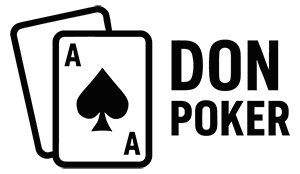The Nature of Bad Beats
If you’ve played poker for more than five minutes, you’ve probably encountered a bad beat. You know, that moment when you’ve got a solid hand—maybe a pair of aces—and then the universe decides to throw a wrench in the works. Your opponent flips over the unlikeliest of hands, and just like that, you’re left watching your chips disappear faster than last week’s leftovers. But before you start crying into your chips, let’s explore why bad beats are really just the universe’s way of testing your bankroll (or your sanity, depending on how you look at it).
Embracing the Sudden Curveballs
Understanding bad beats is like trying to understand why people put pineapple on pizza—some things are just beyond reasoning. You think you’re playing well, that you’ve mastered the game, and then bam! You’re on the receiving end of a card miracle that would make even the most skeptical magician raise an eyebrow.
But let’s face it: poker is about variance. Bad beats are nature’s way of reminding us that life is unpredictable, much like a blind date or an attempt at karaoke. The universe is testing your resilience and, let’s be honest, your ability to maintain composure while questioning everything you thought you knew about luck.
Statistical Reality Check
Now, before you grab your pitchfork and head out to demand justice for your stolen chips, let’s talk numbers. Bad beats are statistical phenomena. If you’re running the numbers, you’ll see that they are a part of the game. It’s the law of large numbers in action, where over time, your good hands will prevail more often than not—unless the universe has decided it’s “Mess with Don Day.”
Think of bad beats as an excellent excuse to channel your inner philosopher. You can sit there and contemplate existential questions like, “Why me?” while simultaneously reminding yourself that every player at the table is just as likely to encounter a disastrous luck situation. In poker, just like in life, a little humility goes a long way—especially when you’re sitting on a massive stack of bad luck.
Keeping Your Cool
The real skill lies in how you react to these unfortunate hands, much like how you handle awkward family dinners. Do you throw your cards down and pout like a toddler who’s just lost their favorite toy? Or do you take a deep breath, chalk it up to experience, and get back in the game? Hint: The latter is likely to keep your bankroll breathing.
Maintaining composure in the face of adversity is what separates the amateurs from the legends. Instead of sulking, take notes on your opponents’ reactions. After all, there’s nothing quite as satisfying as finding out that the guy who just crushed your dreams with a 2-7 off-suit is actually a total fish.
Lessons from Bad Beats
Every bad beat has a silver lining—kind of like finding ten bucks in your old jeans that you thought were trashed. Those moments can teach you invaluable lessons about your game and yourself. You might discover the importance of risk management, the need to adjust your playing style, or simply be reminded of how precious your bankroll really is.
In the end, think of bad beats as a cosmic test. If you can survive the random acts of card violence, you’re one step closer to becoming the poker master you aspire to be. Each bad beat is merely a hurdle you must leap over—a little financial agility exercise to strengthen your poker muscles.
Final Thoughts: The Universe at Play
If you really step back and look at it, the universe has a funny way of keeping us grounded through our bad beats. They are maddening, frustrating, and often downright tragic—but they also provide an opportunity to grow, learn, and become a better player.
So the next time you find yourself gasping at the sight of a four-outer hitting on the river, take a moment to embrace the chaos. Remember, it’s just the universe playfully testing your bankroll and resilience. And who knows? Maybe next time it’ll be your turn for cosmic justice with a little miracle of your own!
